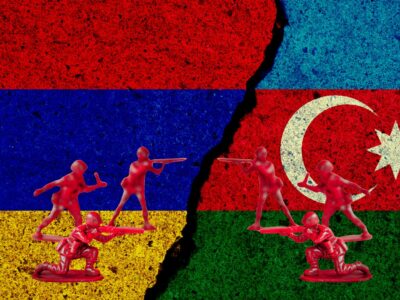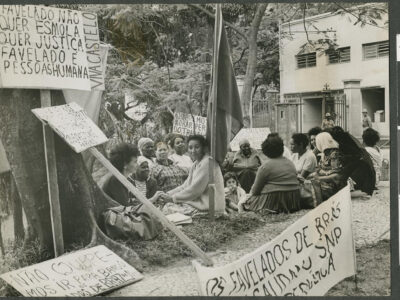Stories about History
Pakistan's post-election scramble: Coalitions and concerns
Following the swearing-in of the Pakistan National Assembly's elected representatives, political parties are actively forming alliances as they prepare to decide on the Prime Ministerial post soon.
Uzbekistan's recent anti-religious measures present a worrisome trend for its Muslims
This is not the first time Muslims in Uzbekistan, who make up 94 percent of the population, face persecution due to their beliefs.
Natural disasters in Mongolia grow worse and threaten the future of nomadic way of life
Although it is animals that die during dzud, these disasters affect the entire nation.
One man is trying to save a language in Bangladesh with only six native speakers
Currently, only six people, all aged over 60, can speak the ethnic Renmingtca language well. If they die, the language and culture will be lost from Bangladesh.
Climate crisis ruins Himalayan pastoralists
Winter droughts and delayed snowfall are impeding grass regrowth in high-altitude grazing sites in Nepal's Eastern Rukum district, endangering the local sheep population and forcing shepherds to leave profession.
Overcoming the patriarchy in India's caste system: Minal's story
"I don't believe feminism should strive for matriarchy, which doesn't translate to equality, but for the equal acceptance of everyone as human beings, regardless of gender."
A deep dive into the musical repertoire of Turkmenistan’s national leader
A major part of Berdimukhamedov’s personality cult has been his musical career.
Flying fish and bearded fig trees are on the decline in Barbados
Flying fish landings have reportedly decreased by almost 50 percent since 2011, and without strategic conservation measures, Barbados could see the bearded fig tree disappear from the landscape.
Armenia and Azerbaijan: The most recent flare up puts peace prospects on the backburner
Whether these recent developments further derail prospects for peace depends on steps taken in the coming months. For now, peace between Armenia and Azerbaijan is hanging by a thread.
For nomads in Mongolia, roaming is a sacred right
The Mongols say that this is why freedom is in their blood.
Pakistan’s political landscape: What to expect from the 2024 elections
On February 8, 2024, over 128 million Pakistani voters are scheduled to vote in a crucial election that has been marred by political repression and judicial harassment against the main opposition.
Tajikistan’s president’s son is the man behind the national football team’s success at the Asian Cup
The national team’s heroics will breathe confidence and optimism into everyone implementing the national football development program called “Orzu-2026” (Dream-2026).
The battle of Bashkir people: Why the largest protests in wartime Russia happened in Bashkortostan
"Russia is stepping on ethnic rakes. The Bashkirs have their own land. At the heart of everything that happened is a word that is now distorted — patriotism."
In Kazakhstan, ‘Bloody January’ is still a taboo topic
"The authorities do not need to dwell on this topic, because why would they? They killed people, tortured them — why [would they revisit this]?"
The true cost of Japan’s Linear bullet train
Rising environmental and human costs for Japan's planned "maglev," a super-fast, super-conducted bullet train set to link Tokyo to Osaka by 2045, are drawing the ire of many residents.
Uzbekistan’s repression survivors tell their harrowing stories in a new documentary
This is one of the first attempts to tell the story of more than 18,000 people who were jailed on trumped-up charges and labelled “extremists” by Uzbekistan's Karimov government.
Exploring migration, belonging and the meaning of home in Sri Lanka
At an arts exhibition in the Sri Lankan capital, multidisciplinary artist Firi Rahman portrays the agony of Slave Island residents who face the threats of gradual gentrification.
Russian series on Perestroika-era youth gangs breaks popularity records, defying attempts to ban it
Russian streaming services premiered the series "Slovo Patsana. Krov’ na asphalte" (The Boy’s Word: Blood on the Asphalt). Within just a month, it was breaking popularity records in Russia.
Terrorists from Tajikistan have become a global menace
Over the last decade, Tajikistan’s foreign terrorist fighters (FTFs) have brought their homeland under a negative limelight on numerous occasions.
Residents of Rio de Janeiro's favelas make unprecedented claim for reparations for persecution under dictatorship
An organization bringing together residents' associations saw leaders arrested, and was considered subversive in the 1960s, under Brazil’s military dictatorship
Desi Bouterse's post-conviction disappearance leaves Suriname in turmoil
The shocking turn of events has stirred reactions of disbelief, anger and concern, as well as loss of faith in the judicial system.
























